MercoPress. South Atlantic News Agency
Agriculture
-
Tuesday, October 18th 2022 - 10:00 UTC
September, record export month for Brazilian agribusiness: US$ 14 billion
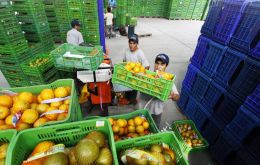
Brazilian agribusiness exports reached US$ 13.97 billion in September 2022, a record for the month with a 38,4% increase compared to the corresponding period of 2021. In addition to the increase in prices, which rose 17.2% between September 2022 and September 2021, the volume exported was up 18.1%.
-
Saturday, October 15th 2022 - 06:27 UTC
Mercosur wheat: Argentina lack of water, in Brazil is has been pouring for the last month
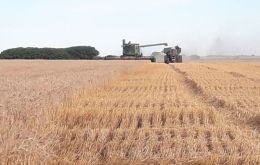
Extreme situations with the Mercosur wheat crop: while in Argentina drought is drastically cutting production volumes, in Parana, one of the leading wheat states in Brazil, rainfall has plagued harvests.
-
Saturday, October 15th 2022 - 06:24 UTC
Backlog of vessels with Ukrainian grains waiting for inspection in the Black Sea

With nearly 100 grain-laden ships reaching towards the horizon off Istanbul, the U.N. official overseeing exports from Ukraine is asking Russia and other parties to end “full-blown” inspections of outgoing vessels to ease the backlog.
-
Friday, October 14th 2022 - 10:00 UTC
Controversy among NZ farmers with the proposed methane gas tax

The New Zealand government has anticipated a controversial farm that would tax greenhouse gases from animals with the purpose of achieving carbon neutrality by 2050. Allegedly it would be a first in the world and farmers should be able to recover the expense by raising the price of items that are environmentally friendly.
-
Thursday, October 13th 2022 - 02:34 UTC
Parts of Uruguay on brink of agricultural emergency due to poor rains

Uruguay's Livestock, Agriculture, and Fisheries Minister Fernando Mattos has not ruled out declaring a national emergency due to the water deficit caused by poor rains, despite western and southern parts of the country being the most severely affected by the lack of rainfall during the winter.
-
Monday, October 10th 2022 - 10:28 UTC
Falklands strict protocol in case of Avian influenza reaching the Islands
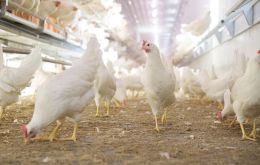
The Falkland Islands government and Falklands Conservation have announced a series of precautionary measures in the event of an outbreak of Avian influenza that has spread in European countries.
-
Friday, October 7th 2022 - 10:26 UTC
Brazil on a steady path to becoming a wheat exporting country

Brazil forecasts a crop of 10 million tons of wheat this season, up from a previous estimate of 9.67 million, agribusiness consultancy StoneX said on Wednesday, as farmers in the country continued with their harvesting.
-
Wednesday, October 5th 2022 - 14:51 UTC
Brazil, with Mercosur partners, plans to become a global rice exporting hub

As India, the world leader in exports restricts rice shipments, Brazil signaled at the World Trade Organization (WTO) that together with Mercosur partners, it is ready to expand exports and help with global food security.
-
Wednesday, September 28th 2022 - 17:30 UTC
Argentine beef exports grow but demand from China takes downward path
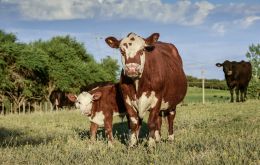
Argentine beef exports have grown interannually but demand from China is 20% lower than in July and decreasing, with a marked downward trend in prices, according to a report from the Argentine Beef Exporters (ABC) Consortium in Buenos Aires.
-
Tuesday, September 27th 2022 - 09:51 UTC
Brazil expects record harvest of wheat and moves closer to self sufficiency
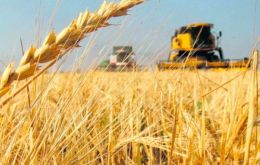
The Brazilian wheat crop should reach 10.935 million tons as 2022 yields in four states are likely to increase output in what will be a record harvest for local farmers.